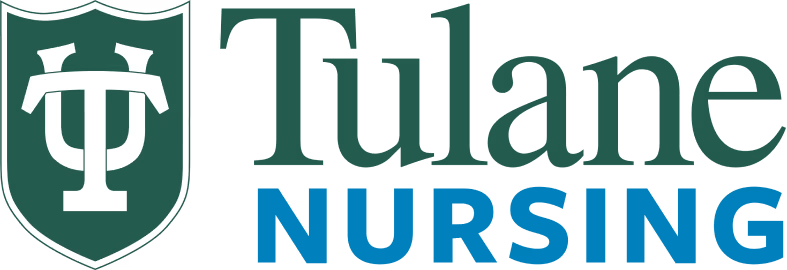The Importance of Networking in Nursing
Networking in nursing greatly benefits your career. By expanding your networking efforts in healthcare, you can help create a long-lasting and supportive healthcare community. Through education, mentorship, and connection, you can improve your ability to provide quality care to your patients.

Nursing is a complex, fast-paced, and highly rewarding field. It also requires a lifetime of learning to continue to grow. One way to keep your nursing skills and knowledge sharp is through networking.
At Tulane University, we are invested in our students’ success and have created an environment that enables them to excel in their studies and future careers. Our accelerated Bachelor of Science in Nursing (aBSN) program not only provides students with a comprehensive nursing education but also offers ample networking opportunities during nursing clinicals.
Networking in nursing can improve your career prospects, create a supportive community, and provide vital learning opportunities. Before you take the next steps toward becoming a registered nurse, you should ask several questions about networking, such as, “Why is it important?” and “How can I build my network?”
With these answers, you will be able to find networking opportunities before, during, and after nursing school and learn firsthand the benefits of networking for nurses.
What Is Networking in Nursing?
Professional networking in nursing is the process of establishing and maintaining professional relationships with other nurses. Similarly, networking in healthcare includes connecting with other healthcare professionals — not just nurses — that you may encounter throughout your career. Your professional network will evolve over time and serve as a valuable resource.
Networking in nursing can be done through various activities that foster connections, facilitate knowledge sharing, and promote collaboration. All have the common goal of improving patient care and advancing the nursing profession.
Why Is Networking in Nursing Important?
Networking in nursing has many benefits, and the value of building these connections cannot be overstated. Professional networking in nursing can help you access better career prospects.
In fact, 80% of job opportunities are not posted, meaning a large portion are filled through word of mouth within one’s professional network. Building a strong professional network can open doors to new opportunities, career pathways, and professional growth that you might otherwise not have known.

Evidence also shows that nurses who maintain long-term connections with mentors, advisors, and peers report better job satisfaction. A network of nursing mentors who offer emotional support, educational guidance, and career advice can help nurses advance in the field.
The importance of networking in nursing includes amplifying nurses’ voices and advocating for their patients by addressing issues that affect healthcare policy, legislation, and practice. By joining professional organizations, participating in advocacy initiatives, and engaging with policymakers, nurses can also influence decision-making processes and contribute to shaping the future of healthcare delivery.
Networking Opportunities for Nurses
Most people think that networking is only done in an office setting or, for nurses, in a hospital or healthcare facility. However, nurses can find and build their networks in numerous ways.
Professional Nursing Organizations
One of the best ways to find nurses with similar career goals is to join a professional nursing organization. You can join numerous specialty and general nursing organizations, and many are free or discounted for nursing students.
A great place to start is by joining the National Student Nurses’ Association, which supports the mission of student nurses through advocacy and education. Another organization that you can consider is the American Nurses Association, which supports and advocates with and for nurses, including student nurses.
Online Nursing Platforms
Several online professional platforms allow nurses to gather, exchange ideas, participate in learning opportunities, and engage in a network beyond their workplaces.
LinkedIn, a professional social media platform, and nursing-specific forums are great places to start building your network. Consider joining, creating a profile, and sharing or posting when you have career-specific questions or thoughts on the profession.
Remember to always maintain patient privacy, covered by HIPAA, when using online and social platforms. You must also keep your professional image and that of your employer in mind. Before asking a question or commenting on social media or a website, use the acronym THINK: Is the post True, Helpful, Inspiring, Necessary, and Kind?

Nursing Conferences
As you start your nursing education, you may already have received information about attending professional nursing conferences. Discounts are often available for students to attend these conferences, which are a great way to connect with nurses in specialty areas. Examples include the Association of Women's Health, Obstetric and Neonatal Nurses conference and general nursing conferences such as the National Student Nurses' Convention.
Benefits of Networking in Nursing
Networking in nursing has several benefits for the nurse and the nursing profession, including the promotion of collaboration, innovation, and advocacy as a unified force. Below is an exploration of a professional network’s benefits.
Continued Education and Learning Opportunities
Networking provides opportunities for nurses to learn from others, exchange ideas, and remain updated on the latest advancements in healthcare and nursing practice. Continuing education opportunities will help you to build your connections while staying on the leading edge of patient care. Through networking, nurses can learn about and attend conferences, workshops, and seminars; participate in continuing education programs; and access career advancement resources.
Mentorship and Guidance From Experienced Practitioners
Nurses can build strong mentoring relationships with physicians, pharmacists, therapists, and other healthcare professionals. Networking in healthcare can help professionals coordinate care, share information, and develop comprehensive treatment plans.

Career Advancement and Job Opportunities
A strong network may make all the difference in landing your next job or receiving a promotion. If the hiring manager or someone on the hiring team is in your professional network, they are likely to mention your name or put your application at the top of the list.
In addition to jobs, your nursing networking allows you to collaborate with other healthcare professionals from different disciplines, promoting interdisciplinary teamwork that enhances patient outcomes and care experiences.
Emotional Support and Camaraderie Within the Nursing Community
Networking provides a platform for nurses to connect with peers who share similar interests, challenges, and experiences. By joining professional networks, online forums, and social media groups, nurses can seek advice, share best practices, and receive emotional support from colleagues facing similar professional and personal challenges.
5 Tips for Effective Networking for Nurses
Many ways exist to effectively network as a nurse. Thinking outside the box and seeking diverse opportunities to network provides you with access to myriad resources. Here are five tips for being strategic about your networking activities.
1. Explore Diverse Avenues
Networking does not have to be limited to in-person interactions. Online platforms can connect you to a wide variety of healthcare professionals. Additionally, you do not need to limit your networking to nursing or a single nursing specialty. Casting a wide net can help forge vital connections with professionals throughout New Orleans and Louisiana, exposing you to various career and learning opportunities.
2. Set Specific Networking Goals and Objectives
When participating in a networking activity or event, set your goals ahead of time. Make sure that your goals are SMART — specific, measurable, achievable, realistic, and timely — to get the most out of your networking efforts.

For example, instead of setting a goal such as “meeting more nurses at a convention,” consider setting a SMART goal such as:
“I want to connect with at least five healthcare professionals in the medical-surgical nursing specialty and follow up within two weeks after the convention.”
SMART goals will help you track your progress and forge a clear path toward accomplishing your career goals.
3. Be Proactive and Actively Engage in Networking Events
Networking events often have a list of participating people and companies. Search the list before the event and seek out the organizations that interest you.
Fortunately, Tulane has a long history of fostering positive relationships with healthcare facilities throughout New Orleans. As a Tulane aBSN student or graduate, you are backed by a highly respected education that can open many career opportunities.
4. Cultivate Genuine Relationships and Connections
You must remain true to yourself and genuine about your networking activity. By being intentional with whom, when, and how you network, you can ensure that your professional and networking goals align.
5. Follow Up and Maintain Relationships Over Time
You never know when you might need to contact someone in your network for help or advice, or when you will be called upon for support. Prioritize maintaining relationships with your network, even if it is only periodic messages on social media, to let them know that you still think of them and appreciate their being a part of your nursing journey.

Start Networking Early in Tulane's aBSN Program
Tulane’s aBSN program recognizes the importance of networking in nursing and provides a space for students to build their professional networks. ABSN students complete skills labs and simulation experiences alongside Tulane medical students, allowing students to foster connections with a variety of future healthcare professionals.
Clinicals also provide valuable networking opportunities. During clinicals, students work with and supervised by professional registered nurses and healthcare staff, where they can establish a professional network early in their nursing education.
At Tulane, students receive a comprehensive nursing education that serves as a solid foundation for their careers. Students can earn a Bachelor of Science in Nursing degree in as few as 16 months and feel prepared to take the licensing exam. Contact an admissions counselor today to learn how you can take the first steps toward an exciting nursing career.

